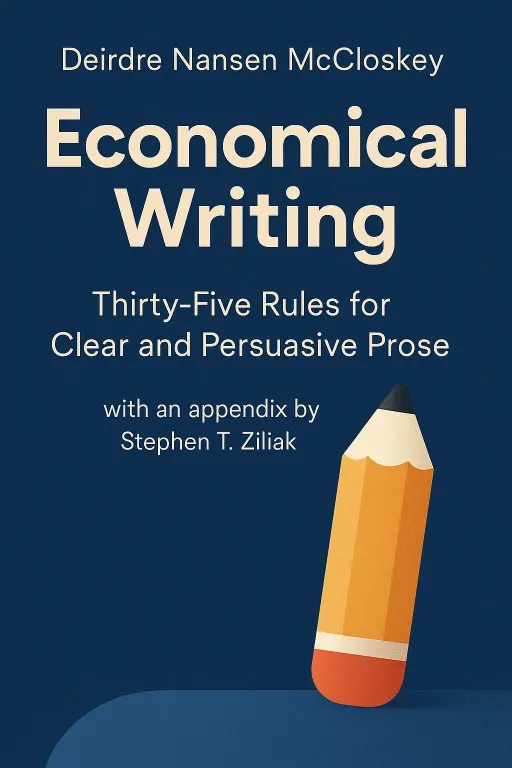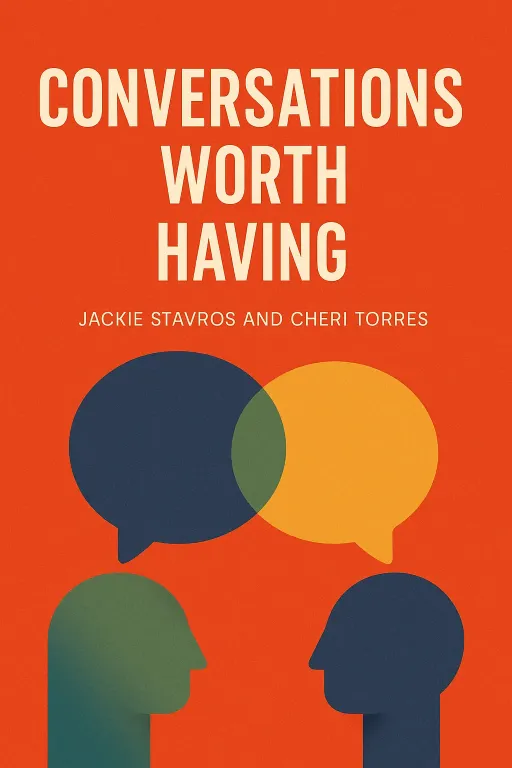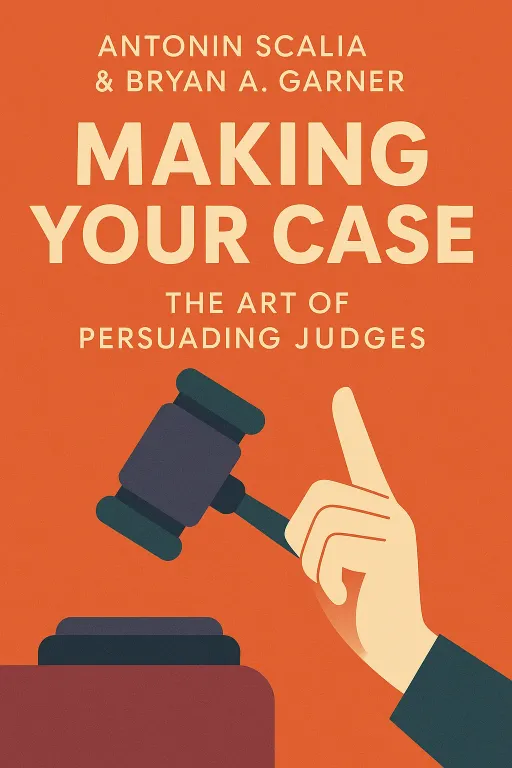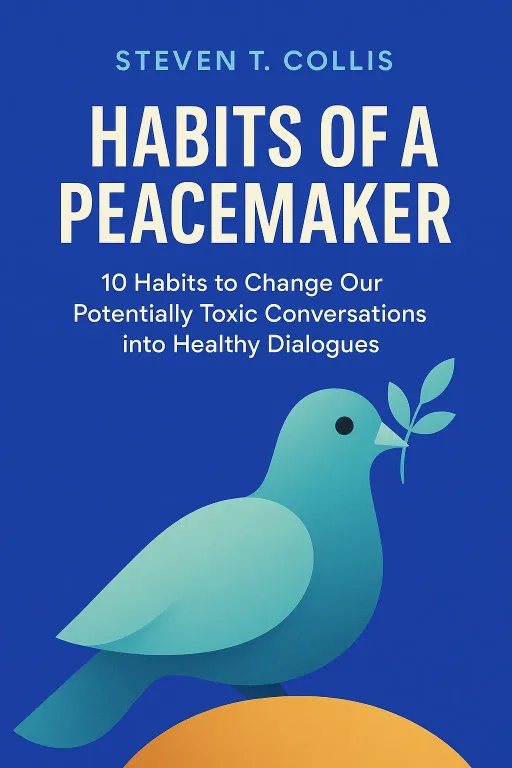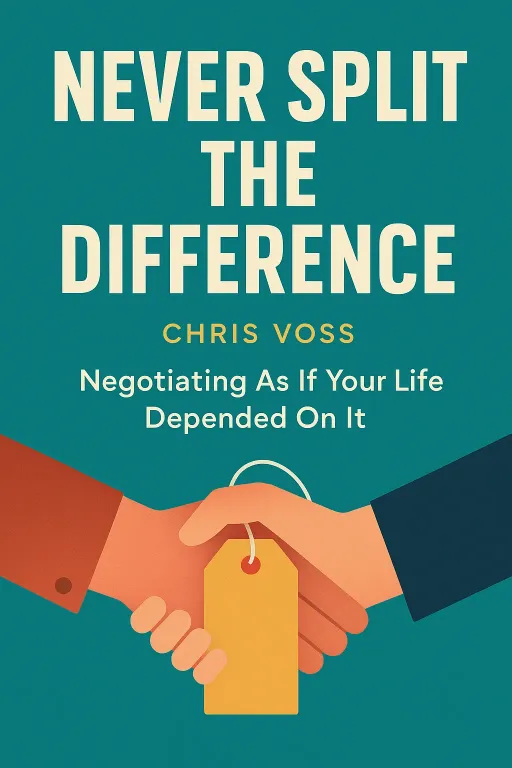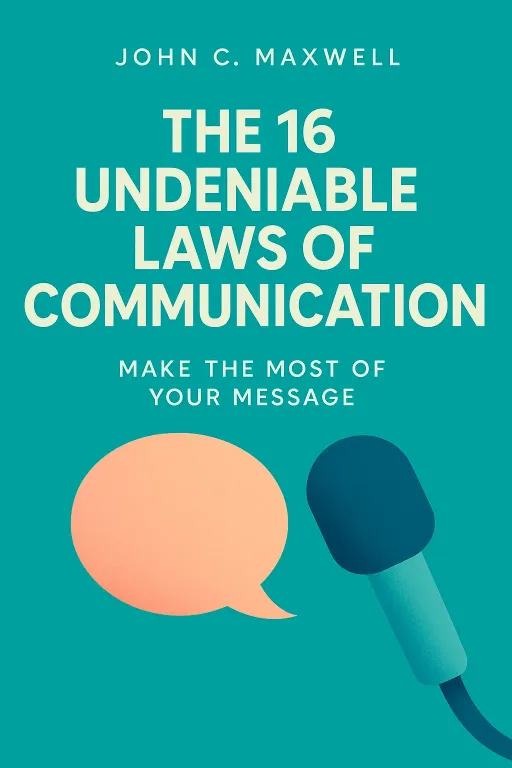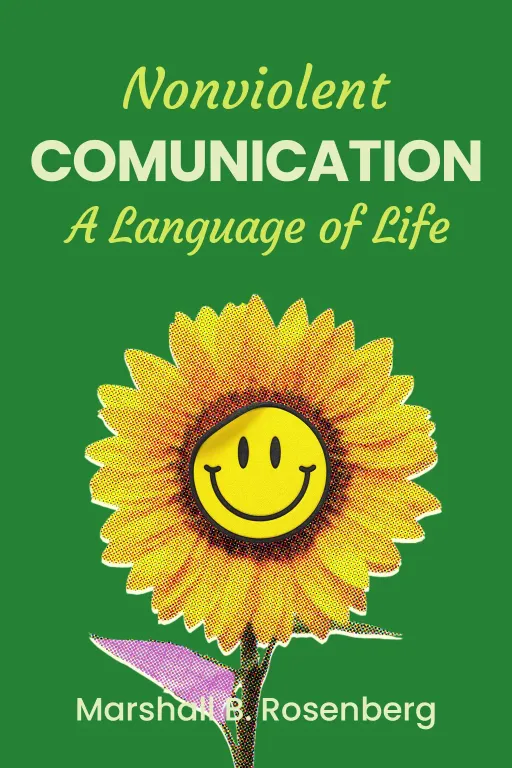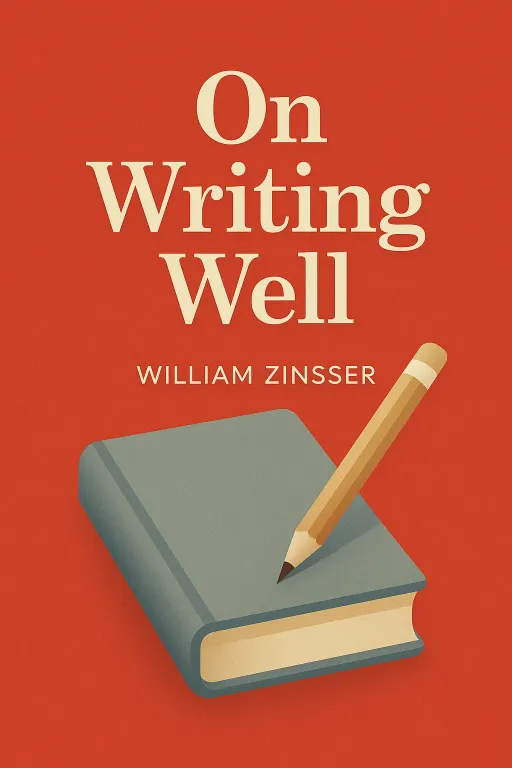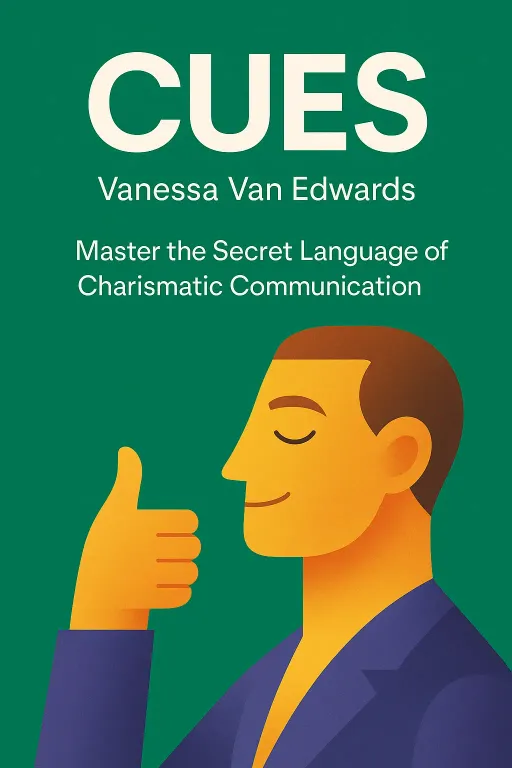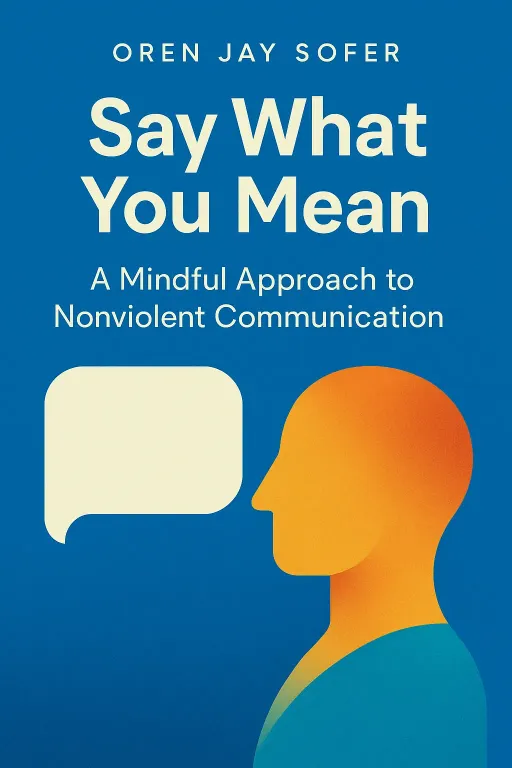
Your Inner State Speaks Loudest
11 minA Mindful Approach to Nonviolent Communication
Golden Hook & Introduction
SECTION
Michelle: Okay, Mark. Say What You Mean. Five words. Go. Mark: Don't just talk; be there. Michelle: Ooh, I like that. Mine is: Your inner state speaks loudest. Mark: Both of which sound deceptively simple, but as we're about to find out, are incredibly difficult to actually do. Michelle: Exactly. Today we're diving into Say What You Mean: A Mindful Approach to Nonviolent Communication by Oren Jay Sofer. And Sofer's background is fascinating—he’s not just a communication coach. He spent over two years as a Buddhist monastic in the Thai Forest tradition and is also a certified trauma specialist. That blend is the secret sauce here. Mark: A monk, a trauma specialist, and a communication expert. That's quite the resume. It explains why the book, which has been widely acclaimed, feels so much deeper than just a list of 'things to say.' It’s not about scripts; it’s about rewiring how you show up to a conversation in the first place. Michelle: Precisely. And that's where his first big idea comes in, which is surprisingly not about words at all. It's about presence.
The First Pillar: Leading with Presence
SECTION
Mark: Okay, I have to stop you there. 'Presence' is one of those words, like 'mindfulness,' that can feel a bit abstract. It sounds great on a meditation cushion, but how does it hold up in a real, messy conversation? You know, when your partner brings up that thing you did three weeks ago and you can feel the heat rising in your chest. Michelle: That is the exact question Sofer tackles. He argues that presence isn't just a calm state of mind; it's an embodied awareness. It's feeling your feet on the floor, noticing the tension in your shoulders, being aware of your own inner weather before you open your mouth. And he uses a personal story that is just painfully relatable to show what happens when it all falls apart. He calls it the "Farewell Party Fiasco." Mark: I'm already nervous. Let's hear it. Michelle: So, a few years ago, Sofer was at a farewell party for his girlfriend, Evan. She was finishing a year of service at a meditation retreat center, and this party was a big deal for her. They had a road trip up the California coast planned for right after. Sofer, wanting everything to be perfect, had made an appointment to get a new car radio installed for the trip. Mark: Oh no. I can see where this is going. The dreaded 'perfect plan.' Michelle: Exactly. As the party goes on, he starts getting anxious. He's watching the clock, worried they'll miss the appointment. He sees his 'perfect trip' slipping away. Meanwhile, Evan is in her element—laughing, connecting with friends, having this beautiful, meaningful experience. But Sofer can't see that. He's lost in his own anxiety. Mark: He's not at the party anymore. He's at the car radio store in his head. Michelle: He is. So, with no formal send-off in sight, he goes up to Evan and urges her to leave. He's insistent. She reluctantly agrees, but as soon as they get in the car, she just starts crying. She was incensed, both at him for cutting short this incredibly important moment, and at herself for not speaking up. Mark: Ouch. That is painfully relatable. He was so focused on the plan for connection that he completely missed the actual connection happening right in front of him. It’s like meticulously planning a perfect meal and then forgetting to invite the guest to the table. Michelle: That's a perfect analogy. And Sofer's takeaway is brutal but essential: in his fixation on creating a perfect future moment, he had destroyed the present one. He realized that without presence, all the best communication techniques in the world are useless. You're just running a script on a crashed computer. You have to be there first. Mark: So presence is the operating system. The words, the techniques… those are just the apps. And they won't run if the OS is frozen with anxiety or stuck in the future. Michelle: You got it. That's the first pillar. You have to learn to show up, fully, before you can even think about what to say.
The Second Pillar: Coming from Curiosity and Care
SECTION
Michelle: And once that 'computer' is running—once you have presence—the next step is choosing the right 'software.' Sofer says this is our intention. And he argues that the most powerful intention isn't to be right, or to win, or even to be understood. It's to be curious. Mark: Curiosity sounds nice, but what about when you're genuinely angry or you believe the other person is completely, fundamentally wrong? I'm thinking of political arguments, or deep ethical disagreements. Can curiosity really work in extreme situations, or is that just wishful thinking? Michelle: This is where the book gets truly mind-blowing and moves from personal relationships to societal change. Sofer brings up the story of Daryl Davis, a Black blues musician who, from a young age, was haunted by a simple question: "How can you hate me when you don't even know me?" Mark: A question a lot of people have asked, but most of us don't do what I suspect he did. Michelle: Not at all. In the 1980s, Davis made a decision. He would actively seek out and meet with leaders of the Ku Klux Klan. Not to debate them. Not to protest them. But simply to sit down and ask them his question. His intention was pure, unadulterated curiosity. Mark: Wait, hold on. He didn't go in with facts and figures to debunk their ideology? He just... listened? That takes a level of courage and inner grounding that is almost unimaginable. Michelle: It's staggering. He would sit for hours, sometimes in their homes, surrounded by Confederate flags and Klan memorabilia, and he would just listen. He'd ask about their families, their lives, their beliefs, and he'd listen to the answers with genuine human interest. He offered them a level of respect and attention they rarely received, especially from someone they professed to hate. Mark: What happened? Michelle: Over time, something remarkable occurred. By treating them as human beings, he made it impossible for them to see him as a stereotype. His genuine curiosity created a space where their ideology couldn't survive. They started questioning their own beliefs. And one by one, they started leaving the Klan. To date, over two hundred Klansmen have given up their robes—many of them handing them directly to Daryl Davis as a sign of their transformation. Mark: That's... that's incredible. It completely flips the script on how we think about changing minds. It wasn't about winning an argument; it was about dissolving the foundation of their hate through human connection. He didn't attack their fortress; he just opened a door and the whole thing collapsed from the inside. Michelle: Exactly. And that's Sofer's core point about intention. Blame and judgment create walls. They give the other person something to fight against. But genuine curiosity—coming from a place of care and a desire to understand—creates a door. Daryl Davis's intention of pure understanding was more powerful than any perfectly crafted argument could ever be.
The Third Pillar: Focusing on What Matters (Needs vs. Strategies)
SECTION
Mark: Okay, so we need to be present, and we need to be curious. That's the internal setup. But what do we actually talk about? How do we focus that curiosity? Because in a real fight, everything feels like the most important thing. The dishes, the tone of voice, what you said last Tuesday... it all gets thrown into the pot. Michelle: This is where Sofer gives us the practical toolkit, drawing heavily from the principles of Nonviolent Communication, or NVC. He says we need to train our attention to distinguish between two things: strategies and needs. Mark: What's the difference? Michelle: A strategy is the specific thing we want. "I want you to do the dishes." "I want you to call me more often." "I want you to agree with my political views." A need is the universal human value underneath that strategy. It’s the 'why.' You don't just want clean dishes; you might have a need for order, or support, or partnership. You don't just want a phone call; you might have a need for connection or reassurance. Mark: So the conflict is almost never about the strategy itself. We get stuck arguing about the dishes, but the real issue is the unmet need for support. Michelle: Precisely. And we can have a million different strategies to meet a need, but the needs themselves—for things like respect, safety, contribution, autonomy, belonging—are universal. We all share them. And Sofer tells a great story about a woman named Kristin who was in a recurring fight with her mother. Mark: The classic mother-daughter battleground. I'm ready. Michelle: Kristin's mother had a habit of correcting her parenting style in front of her young son. Every time it happened, Kristin would feel a surge of anger and hurt, and their conversations would escalate into screaming matches about who was the 'better' parent. That was a fight about strategies. Mark: A fight no one ever wins. Michelle: Never. But after learning about this distinction, Kristin paused. She asked herself, "What's my need here?" She realized she had a deep need for respect for her parenting choices, and for autonomy. Then she did something radical: she tried to guess her mother's need. She figured her mom wasn't trying to be malicious; she likely had a need to contribute to her grandson's well-being and to feel valued as a grandmother. Mark: Ah, I see. Once they saw they both had positive, valid needs—respect on one side, contribution on the other—the conflict wasn't 'me vs. you' anymore. It became 'us vs. the problem.' The problem being: how can we find a way for Mom to contribute that also respects Kristin's autonomy? Michelle: That's the game-changer. The conversation shifted from a power struggle to a creative collaboration. They could talk about new strategies. Maybe the mom could share her wisdom privately, or they could agree on specific areas where her help was welcome. The fight over the 'right way' to parent just dissolved, because they were focused on the deeper, shared humanity of their needs.
Synthesis & Takeaways
SECTION
Michelle: And that really is the thread connecting all three pillars. It's about shifting our focus from the external—the words, the actions, the problem—to the internal. First, we ground ourselves in our own presence. Then, we choose an internal intention of curiosity and care. And finally, we focus our attention on the universal human needs that connect us all. It's an inside-out job. Mark: It's a profound reframe. We think communication is a tool to get what we want from others. To persuade, to argue, to win. But this book argues it's primarily a tool to understand ourselves and to connect with the humanity in others. The outcome—the solution, the agreement—is just a byproduct of that genuine connection. It’s not about saying what you mean, but knowing what you mean, deep down. Michelle: And Sofer makes it clear this is a practice, like learning an instrument. He says you don't learn to play guitar by starting with a complex solo in front of a stadium crowd. You start with simple chords in your bedroom. Mark: That makes so much sense. Don't try this out for the first time in your next big fight with your spouse about finances. Michelle: Exactly. He suggests starting small. Try it when you're asking your partner what they want for dinner. Instead of just asking, take a breath. Be present. Approach them with genuine curiosity. Or try to guess their need. "Are you feeling like you need something easy and comforting tonight?" It's about building the muscle in low-stakes situations. Mark: I'm genuinely curious how our listeners handle this. When was the last time a conversation went completely off the rails because of a lack of presence or a focus on blame? Share your stories with us on our socials. We'd love to hear them, because we've all been there. Michelle: This is Aibrary, signing off.
